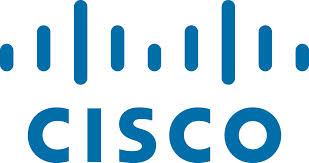Monday, February 19, 2007
Has VoIP Succeeded?
There's a big question to ponder as you start off your week.
This is actually a belated post I promised to do for Luca Filigheddu, a blogger/VoIP entrepreneur based in Italy. He's fairly new to my radar, but has become much better known recently among many of us who blog about VoIP.
I'm not going to rehash the story line in detail, but basically, Luca posted last week about why VoIP has been successful. He had a follow up post as well, citing some reflections based on feedback from other bloggers.
I could go on a long time with my take, and much of what I feel would concur with Mr. Blog, aka David Beckemeyer, who understands disruptive technologies as well as anybody.
I'll just add a few more thoughts, which address some of Luca's 10 reasons to support his position.
- First, as noted by others already, the definition of success is highly subjective. Everything flows from here. If we're talking success in terms of profits, VoIP so far is not a success. If we're talking success for the innovators and risk takers, it's certainly true for the likes of Niklas Zennstrom, Jeff Citron and Jeff Pulver. But for every one of these, there are dozens, if not more who haven't made it. And let's not talk about those who bought into the Vonage IPO. If we're talking about creating the foundation for innovation around IP-based technologies, yes I'd say VoIP has been successful. Has it been a successful disruptor? Yes and no. It's certainly changed the behaviors of every service provider around before VoIP, and I'd argue had a lot to do with AT&T's downfall leading up to being acquired for a song by BellSouth. On the other hand, VoIP hasn't really changed the behaviors of end users all that much. It largely replicates our tried-and-true telephone service, whether at home or in the office. Furthermore, VoIP subscribers still only account for single digit market share, so its impact is still pretty small.
- Skype - agreed, Luca, but you also mention SIP in your list of 10 reasons. Yes, Skype has been very successful in stimulating the use of VoIP, but they're still a long way from earning their keep with eBay. And if/when they do, I'm not so sure VoIP will be the reason. Then there's SIP - which should be a much bigger reason for making VoIP successful, but it's been so overshadowed by Skype in the PC telephony space, and Skype is a closed system. So, there's an incongruity there, but these are mutually exclusive reasons, and I can live with that.
- Vonage - you did not mention them in your list, and I think they belong there. For all the bad things that people will readily say about them, I would argue Vonage has more to do with creating awareness, interest and usage of VoIP among consumers than any other company. They may go broke creating and supporting the brand, but they have built it, and I think that will be their legacy. I've long contended that Vonage is the Kleenex of VoIP, and I don't think anyone can change that. That's a degree of success I don't know you can measure, but it sure registers in most people's minds.
- To be a contrarian, I would argue that VoIP's lack of success has been its inability to attach itself the biggest trend driving telecom globally - wireless. I think this is a far bigger growth opportunity than wireline, and is going in the opposite direction in terms of subscriber growth. Just think of where VoIP would be today if the wireless carriers had embraced it a few years back. Of course, it's easy to understand why they wouldn't, and that may be the point. For VoIP to truly succeed financially, it must go mobile, and the market isn't ready for that yet.
- No profits! In your list of 10 reasons, you cited free calls and Asterisk. Both are great for end users, but they sure make it hard for operators to turn a profit with VoIP. This is probably the biggest holdback of them all - we don't have large scale, proven business models for VoIP. It's a key reason why the big telcos will be the last to roll out VoIP - both wireline and wireless. As Skype has proven, it's easy to build up a huge user base with an offering that's free, is easy to use, and works very well. It's a simple formula, but really hard to monetize. Don't try this at home, folks. In the end, I suspect that VoIP may only be successful as a data application within a larger solution/platform - rather than as a standalone service that people use as a primary line replacement.
- Jeff Pulver. Kudos to you, Luca, for acknowledging Jeff's contributions. I agree 100%, and I think this is true far beyond what most people realize. All true, and Jeff continues to be active and committed to VoIP. That said, I would be remiss to not add that Jeff's interests are focused more these days on video than voice. You don't have to spend much time on his blog or the Pulvermedia web sites to see this. Today, video is where VoIP was 5 years ago, and I think this has lot to do with this change in focus. You can take that at face value, but one could also argue that Jeff sees better potential now in video, and if you've followed Jeff's track record, his instincts and timing have usually been very prescient.
Technorati tags: Jon Arnold, Luca Filigheddu, VoIP
This is actually a belated post I promised to do for Luca Filigheddu, a blogger/VoIP entrepreneur based in Italy. He's fairly new to my radar, but has become much better known recently among many of us who blog about VoIP.
I'm not going to rehash the story line in detail, but basically, Luca posted last week about why VoIP has been successful. He had a follow up post as well, citing some reflections based on feedback from other bloggers.
I could go on a long time with my take, and much of what I feel would concur with Mr. Blog, aka David Beckemeyer, who understands disruptive technologies as well as anybody.
I'll just add a few more thoughts, which address some of Luca's 10 reasons to support his position.
- First, as noted by others already, the definition of success is highly subjective. Everything flows from here. If we're talking success in terms of profits, VoIP so far is not a success. If we're talking success for the innovators and risk takers, it's certainly true for the likes of Niklas Zennstrom, Jeff Citron and Jeff Pulver. But for every one of these, there are dozens, if not more who haven't made it. And let's not talk about those who bought into the Vonage IPO. If we're talking about creating the foundation for innovation around IP-based technologies, yes I'd say VoIP has been successful. Has it been a successful disruptor? Yes and no. It's certainly changed the behaviors of every service provider around before VoIP, and I'd argue had a lot to do with AT&T's downfall leading up to being acquired for a song by BellSouth. On the other hand, VoIP hasn't really changed the behaviors of end users all that much. It largely replicates our tried-and-true telephone service, whether at home or in the office. Furthermore, VoIP subscribers still only account for single digit market share, so its impact is still pretty small.
- Skype - agreed, Luca, but you also mention SIP in your list of 10 reasons. Yes, Skype has been very successful in stimulating the use of VoIP, but they're still a long way from earning their keep with eBay. And if/when they do, I'm not so sure VoIP will be the reason. Then there's SIP - which should be a much bigger reason for making VoIP successful, but it's been so overshadowed by Skype in the PC telephony space, and Skype is a closed system. So, there's an incongruity there, but these are mutually exclusive reasons, and I can live with that.
- Vonage - you did not mention them in your list, and I think they belong there. For all the bad things that people will readily say about them, I would argue Vonage has more to do with creating awareness, interest and usage of VoIP among consumers than any other company. They may go broke creating and supporting the brand, but they have built it, and I think that will be their legacy. I've long contended that Vonage is the Kleenex of VoIP, and I don't think anyone can change that. That's a degree of success I don't know you can measure, but it sure registers in most people's minds.
- To be a contrarian, I would argue that VoIP's lack of success has been its inability to attach itself the biggest trend driving telecom globally - wireless. I think this is a far bigger growth opportunity than wireline, and is going in the opposite direction in terms of subscriber growth. Just think of where VoIP would be today if the wireless carriers had embraced it a few years back. Of course, it's easy to understand why they wouldn't, and that may be the point. For VoIP to truly succeed financially, it must go mobile, and the market isn't ready for that yet.
- No profits! In your list of 10 reasons, you cited free calls and Asterisk. Both are great for end users, but they sure make it hard for operators to turn a profit with VoIP. This is probably the biggest holdback of them all - we don't have large scale, proven business models for VoIP. It's a key reason why the big telcos will be the last to roll out VoIP - both wireline and wireless. As Skype has proven, it's easy to build up a huge user base with an offering that's free, is easy to use, and works very well. It's a simple formula, but really hard to monetize. Don't try this at home, folks. In the end, I suspect that VoIP may only be successful as a data application within a larger solution/platform - rather than as a standalone service that people use as a primary line replacement.
- Jeff Pulver. Kudos to you, Luca, for acknowledging Jeff's contributions. I agree 100%, and I think this is true far beyond what most people realize. All true, and Jeff continues to be active and committed to VoIP. That said, I would be remiss to not add that Jeff's interests are focused more these days on video than voice. You don't have to spend much time on his blog or the Pulvermedia web sites to see this. Today, video is where VoIP was 5 years ago, and I think this has lot to do with this change in focus. You can take that at face value, but one could also argue that Jeff sees better potential now in video, and if you've followed Jeff's track record, his instincts and timing have usually been very prescient.
Technorati tags: Jon Arnold, Luca Filigheddu, VoIP
Subscribe to:
Post Comments (Atom)











5 comments:
Posted by: gzino
I second the mobile point - mobile hasn't gone VoIP as you stated, and also mobile takes landline minutes off of the table - minutes that otherwise VoIP would be able to win from the PSTN on cost alone and hopefully convert to purple minutes down the line. I think we'll see convergence however as broadband IP becomes more accessible via mobile handsets. It is more efficient to engineer voice over a data infrastructure than it is to engineer broadband data over a voice infrastructure (the current mobile carrier infrastructure)...of course the mobile carriers have a virtual monopoly on ubiquitous mobile infrastructures today, but let's hope that changes...
Posted by: Mark Tomin
Citywide wifi networks and mobile phones that support them could make VOIP much more attractive for everyone. Wifi providers could charge for the use of the networks and thus make profit.But it should be cheaper than current cellular calls for users.
Best T1 Line
Posted by: Vic
VoIP HAS succeeded. Thanks to Skype and Vonage leading the way, it'll soon be a household name. We're currently see every telco and network company cater towards VoIP technology. I dont think VoIP will overtake the current mobile market, but I do see a synergy between cellular networks and VoIP technology.
http://nationwideLD.com
Posted by: jack
when I was in london for a year I was in need of some voip provider by which I can make calls to my parents.
I came to know about skype which made my job easier.Now for last 6 months I have been using skype to call to my parents.
so I'm very much happy by using skype,really i can say that skype is succeeding.
Posted by: john
VoIP HAS succeeded. Thanks to Skype and Vonage leading the way, it'll soon be a household name. We're currently see every telco and network company cater towards VoIP technology. I dont think VoIP will overtake the current mobile market, but I do see a synergy between cellular networks and VoIP technology.
http://nationwideLD.com
Post a Comment